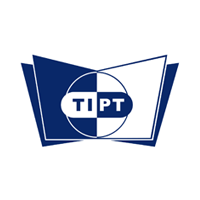
The specialized skills in a regulatory affairs program equip you to work in various industries, one of which is the food industry, including neutraceuticals. Nutraceuticals are foods that have medicinal benefits and are taken for health purposes. Foods with health benefits aren’t limited to neutraceuticals, however.
You’ll find health claims made on various foods through labelling, advertising, and other methods. To ensure transparency and accuracy of the information, regulations apply when specific health claims are being made about food. Read on for how studying regulatory affairs can be applied to foods that have health benefits!
Be Aware of Disease Risk-Reduction Claims after Regulatory Affairs Courses
There are many widely known diet-related diseases, such as cancer, heart disease, and osteoporosis. When food labels advertise that consumption will help to reduce risk of one or more of these diseases, it must be done so within regulations. There are 5 relationships between food and disease risk that are permitted as advertised claims in Canada. They include foods that are low in saturated and trans fats reducing risk of heart disease, non-fermentable carbs in candy not promoting tooth decay, low sodium and high potassium foods reducing risk of hypertension, and calcium and vitamin D reducing the risk of osteoporosis. With a regulatory affairs diploma, you may choose to work in the food industry and help ensure that these claims are both truthful and within limits.

How Does a Regulatory Affairs Diploma Apply to Function Claims?
Unlike disease risk reduction claims, where food is described as preventing and lowering risk, function claims point to how food affects biological functions linked to human health or performance. These effects must come into play when the food is eaten at a normal dietary level, rather than a large amount not commonly found in human diets.
When function claims reference nutrients, they can either state that they help with maintenance of good health, or that they help with development or growth of tissues. Nutrients aren’t the only element in food that can have functional benefits—bacteria are also helpful. Some foods advertise probiotics and their benefits. These are allowed in the context of non-strain-specific claims as well as strain-specific, though the latter must be submitted for review by Health Canada.
Special Dietary Uses for Foods and How They Can Be Advertised
Regulatory affairs courses prepare you for a career where you can communicate with bodies such as the US Food and Drugs Administration, which collaborates with Canadian agencies. While food safety and claims about benefits are well-regulated, foods that are specifically created for special dietary use must also be monitored.
Some special dietary uses include helping people with conditions or diseases, different physiology, or who are attempting to lose weight. Foods that fall under this category include meal replacements, which must fulfill the requirements for one full meal on their own, as well as formulated liquid diets, which need to be consumable as liquids and nutritionally complete for the purpose of feeding people who, due to injury, illness, or disability, are unable to feed themselves.
These foods must be regulated, as false claims or labelling can lead to diets that do not comply with physical or health needs.

Are you interested in studying pharmaceutical regulatory affairs?
Contact TIPT to learn more about food safety and quality assurance courses in Canada
